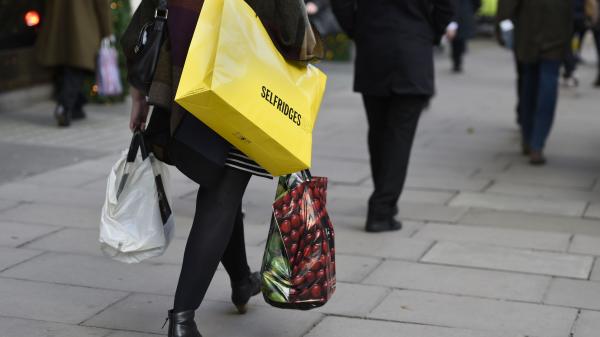Spendthrift Britons stop saving
Rate cut fuels record fall as consumers see no return on cash

Record low interest rates, falling consumer prices and high employment levels have caused the largest collapse on record in Britain’s saving habits.
A monthly report from GfK shows that people’s desire to save money plummeted in August, dropping 16 points from July, in the same month that the Bank of England cut interest rates to a record low of 0.25 per cent.
This was the sharpest month-on-month fall in the survey’s history of conducting a savings index, which began in 1996.
The Bank of England made the first cut to interest rates in more than seven years in August in order to counter a slowdown in consumer spending and business investment following Britain’s decision to leave the European Union.
The closely watched report from GfK showed its savings index fell to -15 in August, from a reading of 1 in July, suggesting the Bank’s move had a direct impact on consumer behaviour.
The survey asks those polled whether they believe now is a good time to save. The same report showed a rise of 9 points in people’s view on whether now was a good time to make a major purchase.
Joe Staton, head of market dynamics at GfK, said the record low-interest rates were having a greater short-term impact on Britain’s decision to save or spend than economic uncertainty around the Brexit vote.
“People are saying to themselves: ‘I am not getting any return so I may as well go out and treat myself and spend.’ So rather than squirrelling money away at this time, they decide that this is the time to buy that new washing machine or lawnmower. Though there still appears to be some frugality in mind as apparently there has been some usage of Raise coupons when people have gone shopping for new products.”
He added that the widespread news coverage of the cut in interest rates was likely to have affected people’s decision on whether to save money.
“We Brits are clearly determined to carry on shopping for today rather than saving for tomorrow. But I think this may be a knee-jerk to the cut in interest rates. It will rebalance,” Mr Staton said.
GfK’s overall confidence barometer also recovered after dipping sharply in the month after the referendum result. The headline index rose to a reading of -7 in August, an improvement on the -12 reading in July.

Mr Staton said: “The uptick in confidence is driven by good news from hard data, the combination of historic low interest rates matched with falling prices and high levels of employment.”
However, consumers remain deeply negative about the economy as a whole, with confidence about the economic situation at -22, up marginally from -33 in July.
Separate figures from the Bank showed that lending to consumers cooled in July, countering other signs from surveys and official figures that Britons had carried on spending in the month after the EU referendum.
Consumer credit, which includes credit cards and personal loans, rose 1.2 billion last month, the weakest increase since August 2015, taking the annual growth down to 10.1 per cent from 10.3 per cent.
This marked a noticeable turnaround after more than a year of soaring growth in consumer credit and showed the first annual decline since December 2014.






